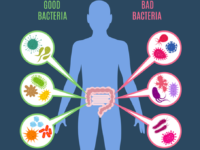When I was in medical school, bacteria were still considered one of the biggest public health threats we faced. And antibiotics were believed to be the Holy Grail that would …
Antibiotics and Allergies: Another Case of “Who Knew?”
I’ve been saying for years that we don’t know how synthetic prescription drugs – these lab-created “alien molecules” that have never existed before on planet earth – will affect us. …
But … Will She Get Better Without Surgery?
“She needs to have it removed.”
“But she’s not dehydrated. She doesn’t have any tenderness or Murphy’s sign. She doesn’t have an acute abdomen …”
In fact, A.D. didn’t have any of the emergency symptoms they taught us in medical school.
“She must have colicystitis. She should have her gallbladder taken out.”
“Well, what’s the likelihood that if she doesn’t have it removed, that her gallbladder will recover?”
“I wouldn’t know.”
At first I thought he was joking. I suppressed my chuckling when I saw he wasn’t kidding. “You’re a GI specialist …”
“You don’t understand… I wouldn’t know if she’d recover because I’ve never seen anybody with these symptoms who I’ve sent to have their gallbladder removed who hasn’t had the surgery.”
“What?”
Gesundheit!
Do you know how hay fever got its name? In England, they harvest alfalfa and other grasses to make hay for winter animal feed. It’s the “dust” from these grasses that are the original cause of hay fever.
A British doctor named John Bostock originally described the symptoms way back in 1819. He called it “a periodical infection of the eyes and chest.”1
Today, we know that what happens is an overreaction of your immune system to particles in the air, like pollen and ragweed. They are produced by trees in the spring, and grasses in the early summer.
A Safer Choice Than Antihistamines
When patients in my clinic ask me how to relieve sneezing, itching, coughing and runny noses, the first thing I do is speak with them about histamines.
Let me show you why…
When your immune system thinks it’s found something that doesn’t belong, it reacts defensively. Your body starts to release chemicals, one of which is histamine. Itching, sneezing and even hives are all signs that histamines are at work…

